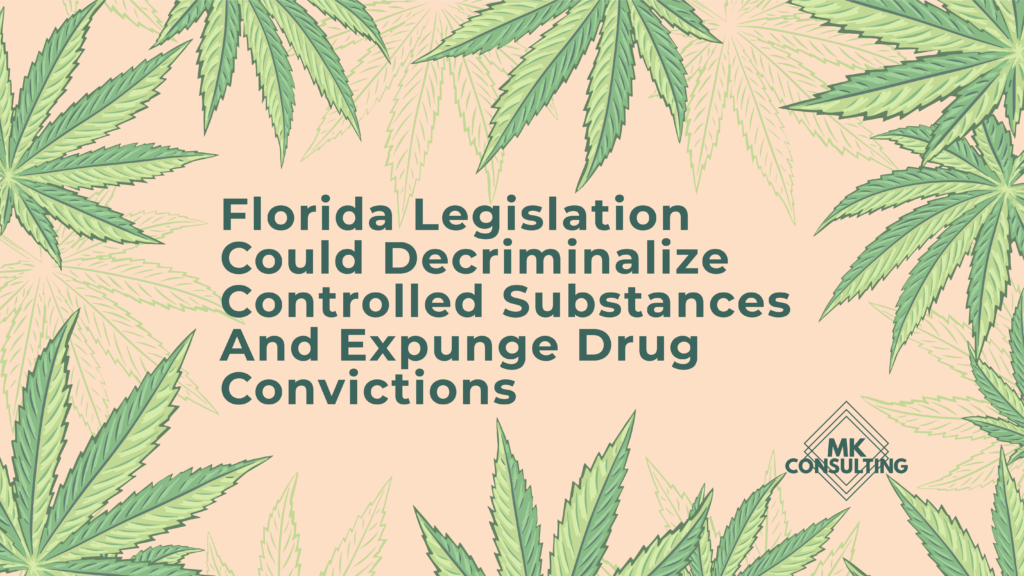On November 23rd, Dotie Joseph, a member of the Florida House of Representatives, introduced a bill that would decriminalize controlled substances.
The bill, entitled “Collateral Consequences and Penalties for Criminal Offenses”, would aim to correct the harm done through the “War on Drugs,” and instead, place a people-centered focus on finding solutions for the current opioid crisis ravaging the state.
If the bill is approved, it will not only expunge past drug possession convictions – including those handed down for cannabis and other controlled substances – but will also take away the potential for jail time for possession, in favor of civil fines and referrals for drug rehabilitation. According to the bill, possession of up to an ounce of cannabis – which currently would come with a sentence of up to a year in jail – would be a non-criminal violation, instead of a misdemeanor, and come with a $50 fine. The same would be applied to the delivery of up to an ounce of marijuana.
Rehabilitation Not Incarceration
Joseph’s bill aims to help drug users with access to rehabilitation through referral programs that will allow for the focus to shift from criminalization and incarceration to actually assisting those who need help, not punishment.
Section 1 of the bill states:
“In the interest of the health and public safety of the residents of Florida, preserving individual freedoms without sacrificing community costs, allowing law enforcement to focus resources on violent and property crimes, generating revenue for education, substance abuse prevention and treatment, freeing public resources to invest in communities and other public purposes rather than continuing to overburden prisons with a population that needs medical attention, seeking corrective equity on the impact of the “war on drugs”, and identifying real people-centered solutions to various drugs crises like the opioid epidemic, the Legislature is prioritizing treatment and safety in an effort to preserve lives rather than discard them through criminalization and incarceration.”
The bill also states that if it passes, what follows will be an automatic sealing of records related to minor cannabis offenses, and that there is no set number of times a person may receive a sealing of their records.
The bill comes at a time when the opioid crisis in Florida is rising dramatically, with Tampa Bay being one of the worst cities in the entire country for overdoses, as the DEA states that they have seen a massive surge in counterfeit pills that have been laced with methamphetamine and fentanyl. The city of Jacksonville, Florida, has also seen a dramatic increase in opioid-related overdose deaths, with the number jumping 2000% in just six years.
For these reasons, Joseph wants to focus on rehabilitating the state’s population, rather than continuing to funnel them through the prison system, where they will never get the help they need.
Supervised Drug Consumption Facilities
Another thing that Joseph’s bill wants to address is harm reduction in the consumption of illicit drugs. To that end, she included in her bill the demand for further studies conducted into supervised consumption facilities, as have proven successful in other states.
“The Department of Health shall conduct a study on more effective methods of addressing drug addiction in lieu of criminalizing. This study shall include but not be limited to supervised drug consumption facilities, which have been proven to reduce public disorder associated with drugs, and lead to a drop in the behaviors linked to HIV and Hepatitis C transmission; programs that have been successful in Seattle, San Francisco and Philadelphia; and any other rehabilitative centered solutions. The Department shall make a report to the Governor, The President of the Senate, and the Speaker of the House of Representatives no later than December 31, 2022.”
Safe injection/supervised consumption sites were first studied in the 1990s in Germany, the Netherlands, and Switzerland, and were found to have reduced public nuisance, improved public and client health. They also reduce the sharing of needles, as well as improperly discarded needles, which has led to a reduction in the transmission of HIV and Hepatitis C.
Dotie Joseph’s bill could change the lives of many, many people across the state of Florida. Not just for those who’ve suffered from the “War on Drugs,” but also those who have found themselves caught up in the midst of the opioid crisis.
How do you feel about the proposed legislation?







